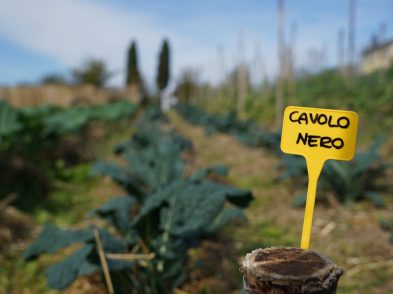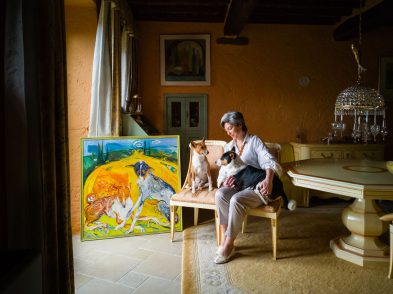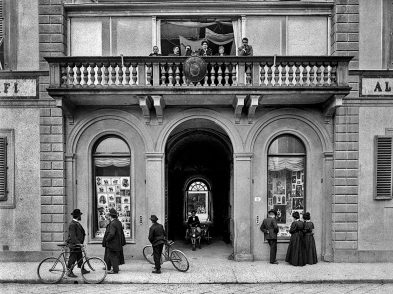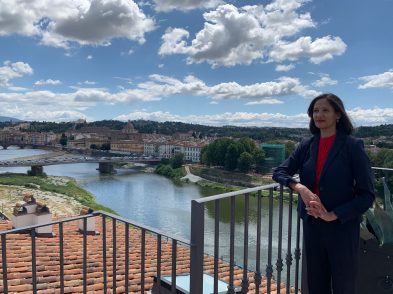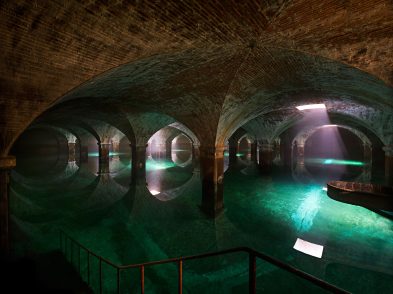To say that the Polo Universitario Città di Prato (PIN) is a satellite campus of the University of Florence seems reductive, but it is the most immediate way to label this innovative educational structure. In truth, with more research labs than degree courses, PIN is a small university that, like a lynchpin, unites university with local economy, intending to stimulate thought and action.
On a recent visit, in one lab, a researcher was wearing a T-shirt with a sensor attached that was wirelessly beaming his vital stats to a computer, a product now in the prototype phase that has incredible potential in the biomedical field. In another, an engineer had developed a new steering wheel for a Formula 1 race car. It seems that not only innovation but fun happens here.
The labs at PIN function as individual entities and can be contracted by private companies or government institutions to undertake research on anything from the educational level of housewives to the structural sanity of a bridge. Graduate and post-graduate students get real-life work experience in these labs.

Probably the largest—and loudest!—lab is the wind tunnel, called CRIACIV, in which researchers conduct wind engineering, mostly for civil applications such as buildings and bridges. Carefully built scale models or life-size segments of proposed or existing structures are exposed to wind speeds of up to 30 meters per second (67 mph/108 kmph) to see how they stand up. CRIACIV has been used to test, among others, the roof of the Alpi Stadium in Turin, a 130-meter-high train bridge in Algeria and a vapour barrier for cooling towers in New York.
Some of the models used in the wind tunnel have been printed using a 3D printer, technology that generates plastic objects in the shapes defined by a three-dimensional computer model. 3D printing is often used for prototyping models, an activity carried out by CASPER, another lab at PIN, which divides its commissions between printing prototypes for new products and reverse-engineering spare parts for old machines. 3D modeling of even more historic objects, on the other hand, is the specialty of an archaeology research unit, VAST lab, which is collaborating with other universities to create open-source software for modeling archaeological or museum objects.

LABORIS is a lab focused on the science of the workplace. Often on contract for institutional clients, they get to ask interesting questions like ‘why does a woman choose not to work outside of the home?’ or ‘are Italian small to mid-sized companies competitive on a European level?’
The performing arts is another strength at PIN. In fact, the undergraduate degree course in arts- and theatre-events management, Pro.Ge.A.S., is a major draw to the university, producing casting directors, location managers and event planners who have found work in Italy and abroad. The university’s interest in the world of entertainment is also visible in the AMAtI project, an archive of Italian actors that represents years of work, and whose researchers can tell you literally everything about a certain actor or director. All of this can be consulted through a database containing audio and visual materials as well as documents.
This hub of high-level research is also a busy teaching facility. More than 3,000 degrees have been awarded during PIN’s 20 years of activity, and about 1,300 students are currently enrolled. If you ask a few of them why they chose to study in Prato, almost all of them will cite the same two facts: low student-to-professor ratio and the ease of studying in the small town of Prato.
For more about PIN, see www.poloprato.unifi.it.

